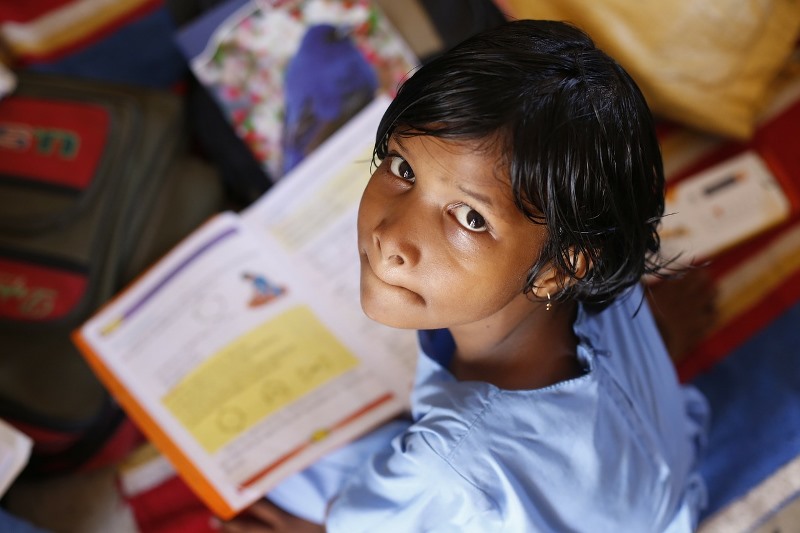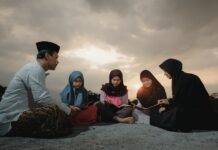What does it take from a seven year old to draw a picture of an orange tree? Does it only need the drawing skills or does it also require something more? Does it need the faculty of fine observation, the eyes which are trained to look at minute details? As educationalists or parents, we need to change our outlook towards learning and education. The learning has to be more realistic and connected to the child’s immediate environment.
Let us talk about what education is in the very first place. We as adults need to understand the difference between literacy and education, to avoid any confusion I will elaborate both here. Education is a way of life, it is the way an individual lives his life, solves his problems and thinks rationally and is able to take decisions.
On the other hand, literacy is the ability of an individual to read and write and perform basic arithmetic. According to world data, India ranks 159 amongst all the 196 countries in terms of literacy rate with a mere 69%.
The statistics are not very encouraging, though an even further disappointing fact remains that there are schools which are following the hackneyed pedagogies which are nowhere connected to the learner and his environment/living conditions.
There are viewpoints stating many factors contributing towards high dropout rate of students from schools. To mention a few, children drop out due to high poverty, and children are often found working as laborers and contributing to the income of their families. There is one hidden factor as well. It does not meet the naked eye so easily.
The fact is that the school is considered as a knowledge store house wherein the child will acquire all the knowledge from the teacher lecturing before him. There has not been any credibility or accountability for the child to use his mind to think, reflect and experiment. Instead the child has to act against his wish, he/she has to tortuously sit through many hours and try and fit in all the existing information into his head. There is perhaps little or no scope to allow him to explore, engage, discover and embark on an engaging journey towards self-exploration.
To understand the current scenario of the way our pedagogy and methodology have been designed, we will have to look into the emergence of our education system. During the colonial time, the British had introduced schools to produce literate clerks who could read and write for clerical work. They did not need thinkers or inquisitive souls. As producing thinkers would have been a threat to their own rule. They did not support analytical skills, problem solving, observation skills.
However, it has been 72 years of India’s freedom. The paradox is that we still continue with the same old education system wherein we discourage a child to try, to discover their inner potential, to ask questions and to discover themselves. We condition their mind with fear, anxiety and threat.
We continue to be colonial in our thoughts and continue to give importance to memory over the skills of reasoning, dialoguing. We consider dialoguing as offensive to the teacher and punish the child for asking too many questions or arguing against what the teacher is proposing.
In case a child raises his voice, he is considered indecent to question authority. Questioning, which a natural way to clarify is considered taboo. Napolean Hill in his book, Think and Grow Rich mentions that an educated person is not necessarily one who has an abundance of general and specialized knowledge. To be truly educated is to have well developed and trained faculties of mind that one may acquire anything one wishes without violating the rights of others.
As teachers and parents, we shoulder responsibility in bringing up the child and shaping his future. However, that responsibility has turned into a burden. We live and sustain in a production unit where our hearts do not respond to our inner voices and the joy of learning is a fantasy. As rightly quoted by A.S Neil in the book Summerhill “The function of the child is to live his own life- not the life that his anxious parents thing he should live, nor a life according to the purpose of the educator who thinks he knows what is best.”
Instead our roles as adults should be to scaffold a child’s learning. Give them the experiences but not condition them. What is wrong in failing? Failures are nothing but experiences which help us grow. Now the question arises, if not this, then what kind of education system do we want? We are looking at global leaders who can think, be good problem solvers and have rational decision making abilities.
We need to allow our kids to make mistakes. Mistakes should not be seen as failures; instead they should be seen as learning opportunities. As parents and educators, we need to focus on skills of reading, writing and arithmetic. The focus should shift from mugging up to practical implication of those skills.











